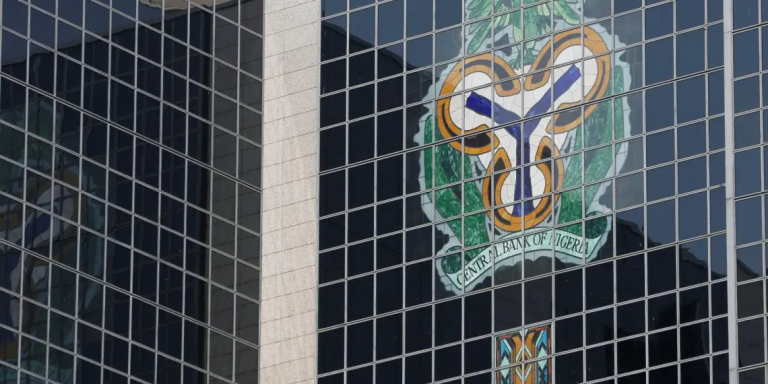
It’s not anymore news that millions of Nigerians have been subjected to an untold hardship in the hands of the various commercial banks as well as telecommunication firms situated within the shores of Nigeria, via instigation of endless bilious charges.
The nauseous practice has almost gotten out of hand that it requires only a stiff measure for it to be bade an eternal farewell by its innumerable victims. It suffices to assert that it has already eaten deep into the sufferers’ bone marrow.
One may ask; why would Nigeria be invariably reckoned to be a place where uncalled and unwarranted practices are ostensibly acceptable or seen as a step in the right direction? Rather than protecting the interests of their clients, these banks and telecom firms prefer to unleash on them villainy, as if they are mere slaves.
Register for Tekedia Mini-MBA edition 19 (Feb 9 – May 2, 2026): big discounts for early bird.
Tekedia AI in Business Masterclass opens registrations.
Join Tekedia Capital Syndicate and co-invest in great global startups.
Register for Tekedia AI Lab: From Technical Design to Deployment (next edition begins Jan 24 2026).
Incessant deductions often reportedly attributed to VAT, SMS alerts charge, ATM service/maintenance interest, monthly card fee, stamp duty charge, and what have you, constantly and consistently made by the commercial banks on their clients’ accounts have become so worrisome that if left unchecked, one may wake up one morning to observe that about 95% of the total money deposited in his or her bank account(s) had been debited from it.
We were told that ‘stamp duty charge’ becomes necessary only when one’s account receives a deposit, but currently such charges are being deducted incessantly. Despite the recent notice of the Central Bank of Nigeria (CBN) that such charges had been put to stop, yet Nigerians are unabated being extorted.
Before an Automated Teller Machine (ATM) card is issued to a client on demand, a sum of N1200 or above – depending on the bank – would be deducted from the recipient’s account, yet such a whooping sum of money wouldn’t be enough to cater for the servicing rendered by the card as long as its use lasts. It’s even mind-boggling to realize that the duration of the card does not exceed between two to three years, or thereabouts.
So humiliatingly enough, sometimes, a client’s ATM card would be produced and printed on his/her behalf upon expiration of their cards, without any prior request to that regard. What an imposition!
On their part, the telecom companies would always make use of imposition mechanisms to actualize their dubious motive. In most cases, their customers would be taken unawares as regards subscribing to a certain tariff or promo as if the airtime on their SIM cards weren’t purchased by them.
A situation where someone would buy a #100 airtime and all the money would instantly vanish into thin air, really and absolutely calls for a public outcry. Among all, unsolicited text messages and phone calls – especially the ones on advert – continually received from these service providers are another thing of great worry to the concerned public.
The aforementioned callous and villainous attitudes of most firms operating in Nigeria, which are to say the least very appalling and thought-provoking, have become a case study to hundreds of thousands of researchers in the country. It’s indeed pertinent to acknowledge that Nigerians at large are seriously suffering in the hands of those they patronize or who are required to treat them like kings. How would you reconcile this?
This lingering impunity has made many concerned stakeholders in Nigeria to insinuate that the country lacks competent and reliable regulatory bodies. Of course, in a situation like this, embracing such speculation wouldn’t be far-fetched.
We are all aware that each commercial bank and telecom firm in Nigeria is answerable to the CBN and the Nigerian Communications Commission (NCC), respectively, as well as the Consumers’ Protection Council (CPC). But what the people aren’t aware of is if the said relationship is really being upheld.
These regulating agencies would always wait for the public or consumers to lay a complaint before they take action, even in a situation where the commission or any of its members happened to be one of the victims/sufferers of the ordeal, or when the unbearable circumstance is very glaring.
So, if a police officer, for instance, happens to be in a commercial bus and therein one of the passengers is accused of theft or was caught stealing, the said security personnel instead of arresting the accused person or doing the needful headlong would expect other passengers in the bus to come over to the police station to lay a complaint before he would take the action expected of him? I’m just thinking aloud, but every sane individual needs to be deeply thoughtful over it.
It’s high time we awoke from our respective slumbers with a view to living up to the expectations. Any firm or person accused of any foul play or punishable offense ought to be brought to book by collective efforts of the apt authorities having acquired the needed evidence for the prosecution.
The consumers or clients domiciled in Nigeria cannot continue to be treated like nobody, hence the compelling need for the concerned authorities to start walking the talk.



